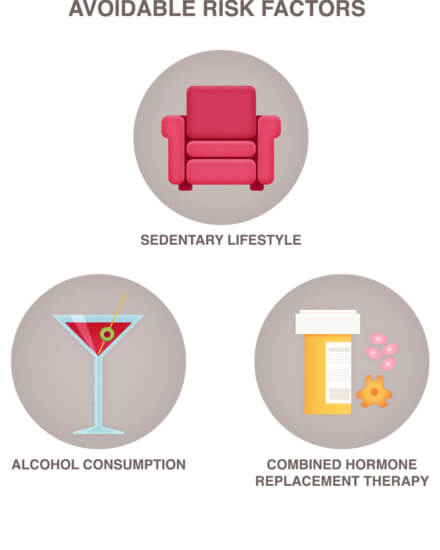Breast Cancer Awareness
At Home with UAEX
Learn from the best Extension Educators on being at home with UAEX!
Breast Cancer Awareness
by Original content: Joy West, Jackson County | Blog post: Katie Cullum, White County

Breast Cancer is the most common cancer for women in the world, with hundreds of thousands of women succumbing to it each year. In the US alone, an estimated 276,480 cases of invasive breast cancer and 48,530 cases of non-invasive breast cancer were diagnosed in 2020. That is 1 in every 8 women. Since 1990 death rates have been declining due to better screening, early detection, increased awareness and improving treatment options. Yet approximately 42,170 women will die this year from breast cancer.
Thought of mostly as a female cancer, males can be affected too. Less than 1% of breast cancer cases develop in men, about 1 in 1,000 men will be diagnosed. An estimated 2,620 men in the US will be diagnosed this year. Although rare, men have a higher mortality rate, approximately 520 men will die this year in the US. When men detect a lump, they often delay in reporting it to their doctor. This delay causes a gap in time before seeking treatment, which then may require more treatments.
When breast cancer is detected early in the localized stage, the survival rate is 99%. It is important to do monthly breast self-exams and scheduling regular clinical breast exams and mammograms.
Scientists don’t know the exact cause of Breast Cancer. Cancer grows when a cell’s DNA is damaged but why or how it becomes damaged is unknown. There are certain risk factors that are associated with breast cancer.
Genetic Factors
- Gender: occurs nearly 100 times more often in women
- Age: two out of three women are diagnosed after age 55
- Race: more often in Caucasian women than other races
- Obesity: this is a risk factor for both men and women
- Family History and Genetic Factors: if a parent, sibling, or child has been diagnosed with breast or ovarian cancer you are at a higher risk, the risk increase if they are diagnosed before age 50
- Personal Health History: diagnoses of breast cancer or abnormal breast cells in the past
- Menstrual and reproductive History: early menstruation (before age 12), late menopause (after 55), having your first child at an older age or never given birth
- Genome Changes: mutations in certain genes can increase risk
- Dense Breast Tissue: increased risk and makes it harder to detect
Environmental and Lifestyle Risk Factors

- Lack of Physical Activity: a sedentary lifestyle with little physical activity
- Poor Diet: a diet high in saturated fat and lacking fruits and vegetables
- Being Overweight or Obese: increases risk especially if gone through menopause
- Drinking Alcohol: the more alcohol you consume the greater the risk
- Radiation to the Chest: radiation therapy to the chest before the age of 30
- Combined Hormone Replacement Therapy (HRT): taking this therapy can increase risk for cancer and the risk it will be detected at a more advanced stage.
To help with improving your lifestyle risks check out our life skills and wellness resources.
More information and resources on breast cancer can be found at: nationalbreastcancer.org/about-breast-cancer/
Also check out the Beyond the Shock Video series on YouTube:
